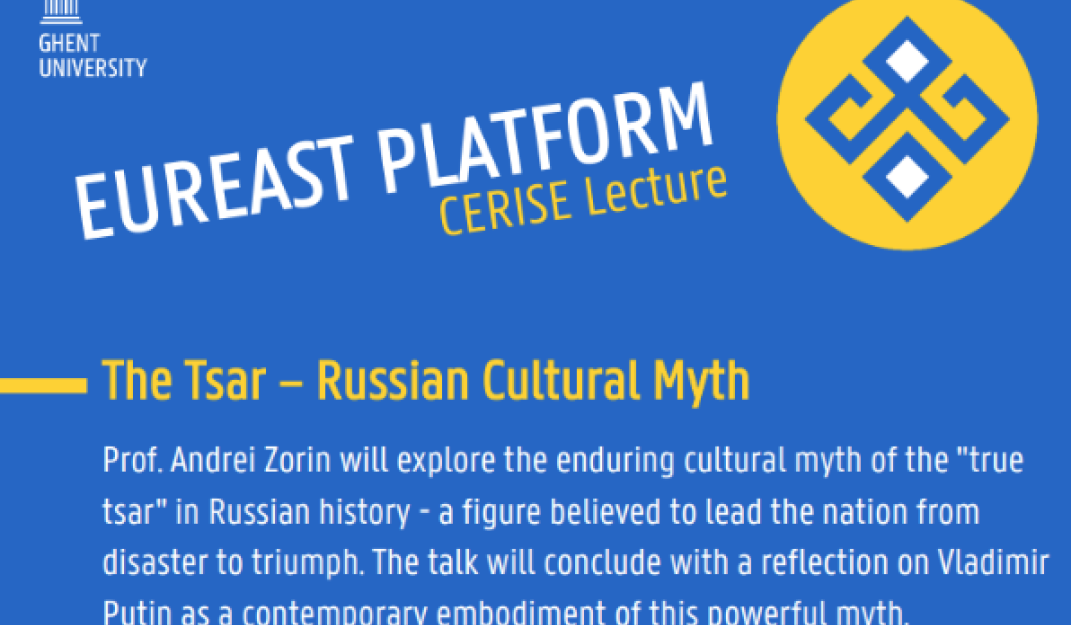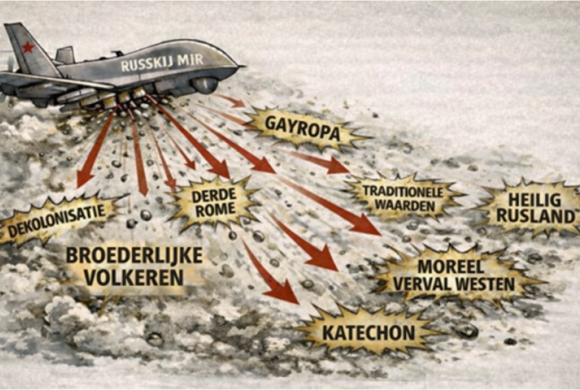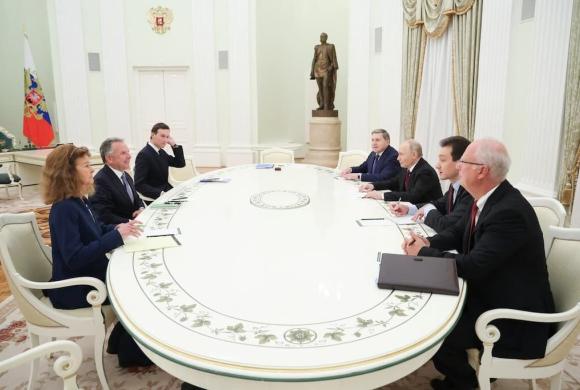Lecture 'The Tsar - Russian Cultural Myth'

‘Cultural mythology’ constitutes a pool of semi-articulated assumptions shared by a significant chunk of the population. It is distinct from ideology which is – or at least can be – fully articulated, but its success (as the success of any ideological model and even political program) in many ways depends upon its conformity with basic cultural myths. These myths are remarkably resilient and can survive major social and political transformations, but of course they come into existence at some point in history, mature, change, develop and eventually die.
One of the essential cultural myths for Russian culture is the myth of the Tsar. Russian culture perceives national history as a series of disasters followed by miraculous transformations of the country and final victory, led to and organised by a Supreme Ruler. This Supreme Ruler can be called in many different ways – Tsar, Emperor, General Secretary or President. While the Russian political system is frequently described as deeply personalistic, which it undoubtedly is, it is also often labelled monarchical, which it actually is not. Unlike European monarchies, Russia did not have a functional order of succession. Additionally, if we use the Weberian classification of the legitimacy of power, Russian autocracy was always more charismatic than traditional. For Russians, the key question is not whether the tsar is legitimate, but whether he (or, more rarely, she) is a “true tsar”.
This talk by Prof. Andrei Zorin (University of Oxford) will explore the cultural criteria by which the figure of the "true tsar" is defined. The lecture will conclude with a discussion of Vladimir Putin in this context - as a contemporary embodiment of the tsarist myth.
Professor Andrei Zorin is a literary scholar and historian of culture. He graduated from Moscow State University, where he also earned his doctorate. Zorin has taught at the Russian State University for the Humanities, the Moscow School of Social and Economic Sciences, and several universities in the United States, including Harvard University , the University of Stanford, New York University, and the University of Michigan (Ann Arbor), among others. Since 2004 he is Professor and Chair of Russian at the University of Oxford and a Fellow of the New College.
He is the author of more than 200 publications on the history of Russian literature and culture. His major works include By Fables Alone: Russian Literature and Official Ideology in the Late 18th – Early 19th Century (2014; originally published in Russian in 2001); On the Periphery of Europe: The Self-Invention of the Russian Elite, 1762–1825 (2018, co-authored with A. Schönle); Leo Tolstoy: A Critical Life (2020, published both in English and Russian); and The Emergence of a Hero: From the History of Russian Emotional Culture of the Late 18th – Early 19th Centuries (2023; Russian edition, 2016).



